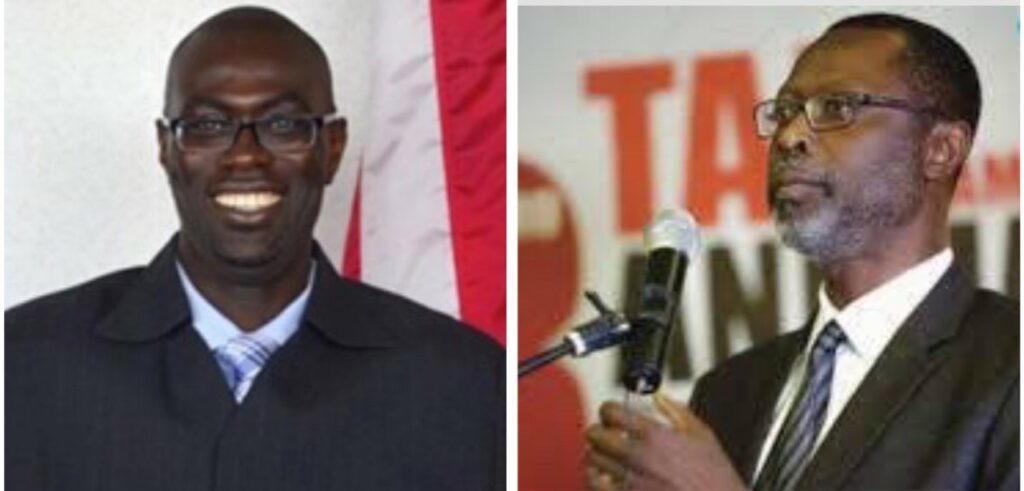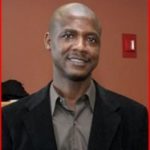
Gambians in the diaspora play a pivotal role in enhancing the Gambia’s economic growth. According to Statistics from the World Bank, the diaspora sent home a quarter of a billion dollars ($250m) in March 2018.
The Gambia included in the 10 countries and the Gambia ranked second in remittance. The economic power of the Gambian diaspora revenue far exceeds than most foreign assistance from international development grants every year.
This represents a 22 % increase compared with $187 million sent in 2017. These figures may be even higher as they are only based on inter-bank transfers. Monies sent through MoneyGram, and Western Union platforms are not included in these estimates. This contribution by diaspora surpasses the total foreign assistance from donors fetch to the exchequer.
Despite their significant contributions to the Gambian economy, present and past governments don’t take this key constituency seriously. The question, therefore, is: why is the Diaspora given a raw deal in the Gambia’s governance systems and processes?
Many African countries are tapping their diaspora for nation-building. The Gambian situation is grave. The diaspora feel that they are not appreciated by the government at home and the Gambia’s embassies abroad but only used as cash cows.
The abysmal services Gambians receive at the embassies abroad are worrying. Recently, Gambians in Asia and other parts of Europe protested poor services at the embassies. Services such as obtaining travel documents and renewing passports are so poor. To add insult to injury, no logistics have been put in place for diaspora number registration roll out in the diaspora thus, putting the Diaspora at limbo.
Untapped diaspora expertise that can benefit the Gambia span many disciplines and professions. We have doctors, engineers, modern technology gurus, just to mention a few currently practising abroad. However, the Gambian government is unwilling to utilise their expertise. Instead, we go to India for medical treatment, employ Chinese to build our roads and bridge and bring in Cuban doctors to serve in our hospitals.
These foreign doctors are paid way higher than Gambian doctors. In fact, they have better benefits and security than what the Gambian doctors demanded when they were sent to prison.
Gambian professionals serving abroad should be encouraged to return home. They have to be offered better terms of service which is often the major reason why they are domiciled abroad.
Why do talented Gambians in the diaspora continue serving their adopted countries instead of their country of birth? What are the consequences of such brain drain especially on the education, health and technology sectors?
The brain drain of Gambian professionals for better opportunities is of growing concern considering the human capita need of the Gambia. What policies can be adopted to stem such movements from developing countries like the Gambia?
What is Dr. Naffie Ceesay, MD Phillipsburg, Dr. Abdoulie Njie, MD in Chicago, Dr. Binn M Jatta, MD, Illinois doing in the United States, Dr. George, MD, Fowlis, Urology and dozens of Gambian medical doctors doing in the United States and in United Kingdom? What are Dr. Ebrima Ceesay (cyber security expert) and Dr. Jorgomai Ceesay doing in the United States of America respectively when the two gentlemen are the finest in computer technology?
In fact, Dr. Jorgomai Ceesay
is a licensed professional engineer in civil engineering focusing on seismic
performance and evaluation of bridges. He is a member of several professional
organizations including the American Society of Civil Engineers (ASCE) and was
even featured on the Who is Who in America publication.
A friend of mine Dr. Alpha Jallow, who practices Psychiatry
in the US, recently shared his perspectives on the state of mental health in
the Gambia. He pointed out the challenges we face to mitigate rampant suicides,
homicides and substance abuse.
Dr. Jallow told me that the number of certified Psychiatrists in the Gambia, a country of almost 2 million is about less than 10. Furthermore, the majority are based in Banjul.
While Western countries like the US and Canada are aggressive in admitting immigrants with diverse skills, the Gambia is aggressively disincentivizing its professionals. The influx of Gambian medics to the Western Hemisphere for greener pastures is quite alarming. Brain drain is killing the Gambia.
President Donald Trump says the US will not be a dumping ground with unskilled people. He wants the country’s immigration to root for the best. Other developed nations are doing the same because their governments know that, it’s expensive to train professionals. That’s why they are doing massive “professional poaching.”
Dr Leigh, a Gambia doctor who works at one of the top children’s research institute in the US, had this to comment on the government’s treatment of its most skilled:
“We love our country and we would want to apply our knowledge and skills to serve our people. However, it demeans the utility of specialized skills when politicians with mediocre education, earn $ 5,000 per month while doctors are paid less than $ 1,000 without better incentives and working conditions. Worse, foreign “expatriates” doing work Gambian like us can do, are highly valued. This is the very definition of mockery.”
Dr. Leigh wonders why the government underpays its professionals who have spent decades in lecture halls gaining knowledge. The government is capable of paying our teachers, lecturers, engineers, doctors and nurses’ decent salaries.
A notable turn-off to Gambian
professionals at home and abroad is when they see people with dubious academic
degrees holding leadership positions in our richest institutions just under the
aegis of democracy.
There is no denying, one can be a greater leader without
superior education, but some situations like formulating government policy
requires good knowledge.
It’s imperative for the government to conduct a vigorous campaign to bring our professionals home. Those domiciled in Dubai, Ontario, New York and London should be encouraged to come and serve Gambians.
In the homeland, something should be done to accommodate great minds like economist Dr. Karamo Sonko who is also a product of the diaspora. Gambians should utilize Dr. Sonko’s expertise at a time when the country is reeling from an economic downturn due to over borrowing, corruption and inflated tendering process.
Whilst many African countries have put up mechanisms that enhance voting rights for their citizens abroad, the Gambia is still at limbo. This so even though the right to vote is explicitly captured in the 1997 Constitution.
One wonders whether we have become “a talking nation” with less action more so from the government and our electoral body.
The diaspora think they are being used as fundraising machines by politicians. They host them in beautiful town halls, book them in expensive hotels with all costs paid. Before they return to the Gambia, they are showered with many gifts. Before they fly back to the Gambia, these politicians make a raft of promises to the diaspora which they never fulfil.
In this era of devolution, the diaspora has seen it all – they have hosted many politicians who invite them to invest in their constituencies. It is shameful and demeaning when some of these politicians will barely remember your name or recognize your face when you visit their offices in the Gambia.
By Alagi Yorro Jallow











Recent Comments